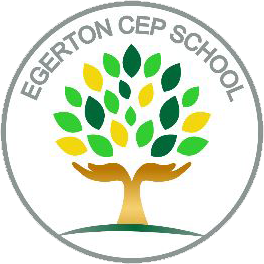SEND Provision
Special Educational Needs and Disabilities (SEND)
Psalm 139:14 of the Bible
"I praise you because I am fearfully and wonderfully made;
your works are wonderful, I know that full well."
At Egerton Church of England Primary school we value all our children and in partnership with our parents, aim to ensure full and equal access to every aspect of learning and the curriculum, irrespective of their ethnic background, gender, disability, religious or linguistic background. We strive hard to meet the needs of those pupils with special educational needs, those with disabilities, those who are more able, those with special gifts and talents and the children who are learning English as an additional language. We provide a rich, challenging curriculum which stretches all of our children. Staff are aware of children who have exceptional talents and gifts and monitor or track their progress carefully to ensure their academic potential or talent is continually developed. For further details, see separate policies.
We welcome any opportunity to work together with families to support our children. Please feel free to contact us by telephone on 01233 756274, informally at drop off or collection, by email at office@egerton.kent.sch.uk or come into the office to make an appointment.
Here to help you are:
-
Mrs Gillian Morrissey, SENCo (Qualified teacher with the National Award for SEN Co-ordination Accreditation)
Available Monday and Tuesday. -
Your child’s Class Teacher
Available at the end of every day on the playground or more formally, by appointment.
Kent County Council provide details of all the services which are available to you through their Local Offer, which can be found at www.kent.gov.uk through the following link https://www.kent.gov.uk/education-and-children/special-educational
ADHD
Attention Deficit Hyperactivity Disorder
ADHD is a developmental disorder characterised by an ongoing pattern of one or more of the following types of symptoms:
- Inattention, such as having difficulty paying attention, keeping on task, or staying organised
- Hyperactivity, such as often moving around (including during inappropriate times), feeling restless, or talking excessively
- Impulsivity, such as interrupting, intruding on others, or having trouble waiting one’s turn
It is common for people to show these behaviours some of the time. However, for people with ADHD, the behaviours are frequent and occur across multiple situations, such as at school, at home, at work, or with family and friends.
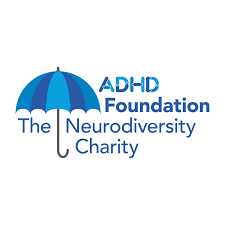
What is ADHD? - ADHD Foundation
Let's talk about ADHD
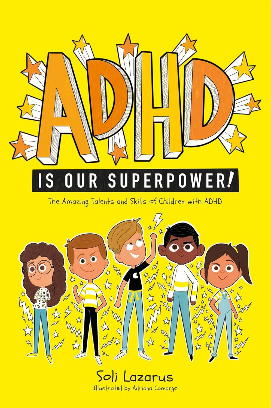 ADHD Is Our Superpower: The Amazing Talents and Skills of Children with ADHD
ADHD Is Our Superpower: The Amazing Talents and Skills of Children with ADHD
If you have attention deficit hyperactivity disorder (ADHD), you might struggle with things like concentrating in school, or sitting still, or remembering lots of instructions. But ADHD is also a superpower.
In this book you will meet different girls and boys with ADHD who can do amazing things. You might recognise some of these strengths as things that you can do too! Some of these strengths help with everyday life, like being able to hyper-focus on a task or having boundless energy to try new things. Some strengths are superpowers for interacting with others, like having a strong sense of what is fair or entertaining friends and family to make them feel happy.
These awesome ADHD kids also share things that you can ask grown-ups to do to help you, like providing visual aids, creating calm spaces, communicating effectively and being kind and patient.
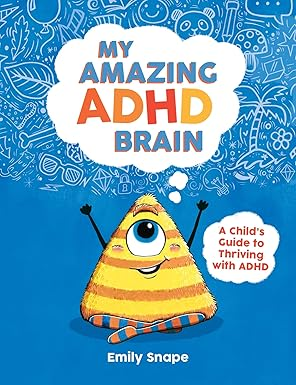 My Amazing ADHD Brain: A Child's Guide to Thriving with ADHD
My Amazing ADHD Brain: A Child's Guide to Thriving with ADHD
Pip is a confident little monster who has ADHD. In this book, they enthusiastically share what that means for them and how it has some really brilliant benefits.
Pip also discusses things they can find tricky, and how they are learning to control their impulses and be more mindful and organized so they can spend more time having lots of fun!
My Amazing ADHD Brain is packed with reassuring words, practical advice and skill-building activity ideas, and has a fun, relatable voice.
Autism
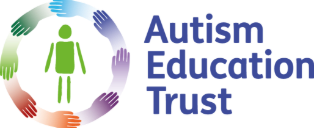
What is Autism? | Autism Education Trust
Why Autism is a Difference, not a Deficit
Watch our brand-new education video and learn Why Autism is a Difference, not a Deficit. While there may be some shared characteristics, every autistic person is unique, with their own strengths, differences and needs. We champion a world where being different is something to be celebrated and where all autistic learners experience a positive education that supports their wellbeing.
Why Autism is a Difference, not a Deficit (youtube.com)
- The following link provides helpful advice about how and when to tell your child about their diagnosis of Autism: https://www.autism.org.uk/advice-and-guidance/topics/diagnosis/disclosing-your-autism/parents-and-carers
Talking about and disclosing your autism diagnosis
Amazing Things Happen!
Introduction to autism aims to raise awareness amongst young non-autistic audiences, to stimulate understanding and acceptance in future generations.
Amazing Things Happen! (youtube.com)
Can you make it to the end?
Understand autism, the person and what to do.
Can you make it to the end? (youtube.com)
An explanation of autism for children - from the book A Different Kind of Brilliant
A Different Kind of Brilliant is a heartfelt children's book explaining autism to a child in a positive way. Please visit www.adifferentkindofbrilliant.com to purchase a copy of the book online. There's also free teacher resource available on the website. Please also follow us on https://www.facebook.com/ADKOBrilliant/
An explanation of autism for children - from the book A Different Kind of Brilliant
BBC - My Autism and Me
CBBC Newsround - My Autism and Me LICENCE - all rights reserved by BBC, CBBC Programmes, Newsround
In this Newsround Special, 13-year-old Rosie takes viewers into her world to explain what it's like to grow up with autism - a condition which affects how children see life, and the way they relate to others around them.
Speech Language - Balanced System
Supporting, speech, language and communication (SLC) at Egerton Church of England Primary School
At Egerton Church of England Primary School, we understand how important speech, language, and communication skills are for every child’s learning, emotional wellbeing, and social development. These skills are the building blocks for success at school and beyond — helping children to build friendships, express their needs, and achieve their potential.
What is speech, language and communication?
- Speech is the act of producing sounds that form words, allowing us to communicate verbally. It involves the physical process of using our vocal cords, mouth, and breath.
- Language is the words and grammar used to communicate. It's how we express thoughts, ideas, and emotions, whether spoken, written, or signed.
- Communication is the process of sharing information, thoughts, and feelings between people. It can be verbal (speech), non-verbal (gestures, facial expressions), written, or visual.
What types of difficulty can children have?
There are many different types of speech, language and communication needs (SLCN). Some examples are:
- Difficulties understanding language: Such as struggling to follow instructions, or understanding what words mean.
- Expressive language difficulties: Difficulty using language to communicate.
- Speech sound disorders: Difficulty producing speech sounds correctly.
- Stammering (Stuttering): Disruptions in the flow of speech.
- Social Communication Difficulties: Challenges with using language in social contexts, such as understanding non-verbal cues or taking turns in conversation.
Find out more here: Speech, language, and communication needs - Kent County Council
How We Support Your Child
In Kent, we are using the Balanced System® to help everyone work together to support pupils’ speech, language and communication. This means everyone involved in a child’s life can work together in a more joined-up way with the speech and language therapy service.
We work closely with our NHS link speech and language therapist, who regularly visits our school. They support us to review and develop our approach, advise staff, and work with individual pupils or small groups where needed.
Our current link therapist is Louise Bailey — your child may see them in class, in groups, or around the school.
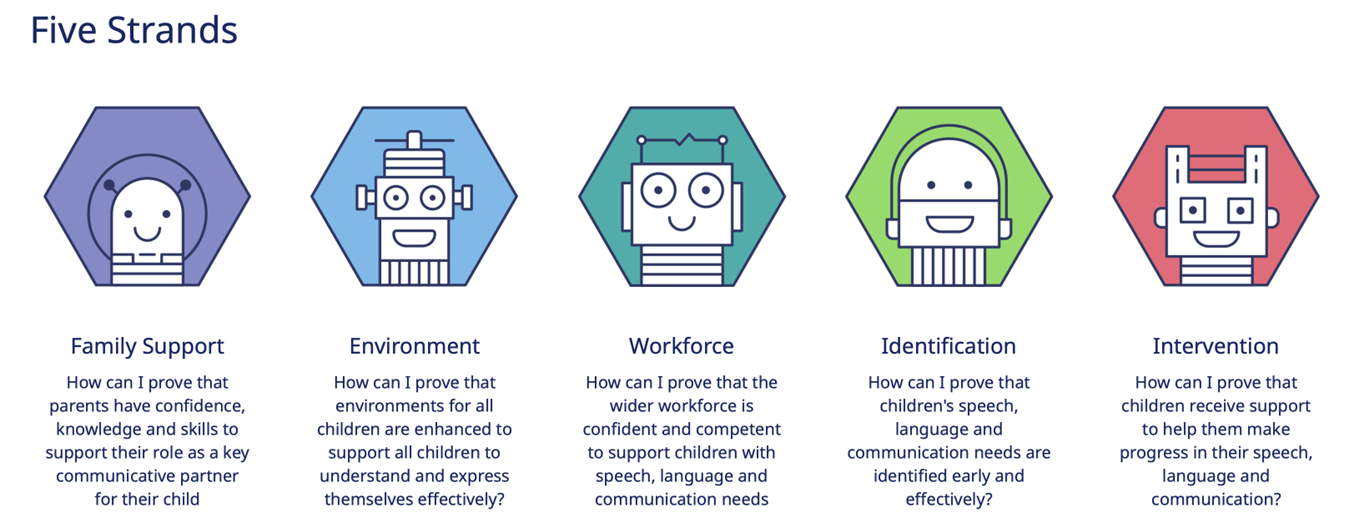
Our Commitment – The Five Strands of the Balanced System®
We are working to ensure that...
- We help parents and carers build the confidence, knowledge, and skills to support their child. Pupils are also encouraged to make choices about the support they receive (Family Support).
- We create communication-friendly classrooms and learning spaces where every child can understand and express themselves (Environment).
- Our staff are trained to spot speech, language, and communication needs and know how to support pupils effectively (Workforce).
- We identify any needs as early as possible so children get the help they need quickly (Identification).
- Where needed, we provide specific support to help children make progress (Intervention).
Levels of Support Available
Every child benefits from support at different levels. Some may need more targeted or specialist help at times in addition to universal support:
- Universal Support – For all pupils. For example, using visual aids, clear instructions, and communication-friendly teaching strategies.
- Targeted Support – For pupils who need extra help. This could include small group work or pre-teaching key vocabulary.
- Specialist Support – For pupils with more complex needs. For example, therapy for a child with a complex speech sound disorder
Our Current Focus
Over the past year, we have been working on developing overall provision and integrated support for all of our pupils, making adaptations to the class environment. Our link therapist provided staff training and did a joint learning walk with the SENCo.
The SENCo meets termly with the link therapist to discuss overall SLCN needs and next steps as well as discussing individuals flagged for speech or language therapy. The therapist has carried out individual assessments, provided treatment plans, provided resources and demonstrated these to teachers and TA’s.
With the support of the link therapist, we organised a coffee morning for parents. In the coming year, we hope to invite the link therapist to meet new parents of children in Year R, at the coffee and conversation in term 1.
In Year R all children are screened for language using the Nuffield Early Language Intervention and for speech using Speech Link. TA’s have received training on how to conduct interventions.
For more information about the Balanced System® in schools and how speech and language therapy services work, visit KELSI.
If You Have Concerns
If you have any concerns about your child’s speech, language or communication skills, please speak to your child’s class teacher. We will then work together to agree on the next steps.
If necessary, we may discuss your child’s needs with our link therapist and develop a plan. You will be kept informed about any plans to support your child.
An important principle of the Balanced System® is ensuring that what matters most to you and your child is central to agreeing on outcomes and setting targets.
Useful websites for parents
Speech, language, and communication needs - Kent County Council (general information about SLCN in Kent including how to access support)
The Pod - KCHFT – (information and resources including workshops delivered by Kent speech and language therapists)
BBC Tiny Happy People (advice and activities for all parents to support speech, language and communication development, up to age 5).
Home - Speech and Language UK: Changing young lives (national charity, lots of information on typical development, resources and advice translated into different languages)
SLCN - Afasic (national charity – information and resources)
RADLD - Raising Awareness of Developmental Language Disorder - RADLD
Parent Portal - Speech and Language Link (information about development and activities to support including for teenagers)
Words for Life | National Literacy Trust | Words for Life (parent advice to support language, literacy and communication for up to 12 years)
Zone In | Words for Life (Tips on boosting reading, writing, speaking and listening skills for young people age 14+)
The Balanced System® in Kent for Speech Language and Communication Needs (SLCN) – KELSI (information aimed at schools and professionals, but may be of interest to parents wanting to understand how the Balanced System works in more detail)
General Family Support
Please find further information and links about support for families below.
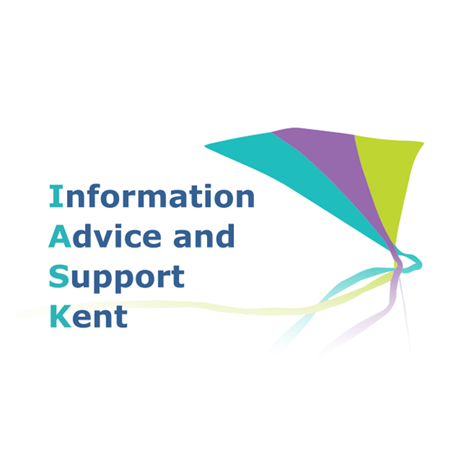
Information, Advice and Support Kent (IASK) provides free, impartial and confidential information, advice and support about special educational needs and disabilities (SEND) for children and young people.
Information Advice and Support Kent

Family lives have a wealth of information for families from pregnancy through to secondary aged advice, wellbeing, parenting ideas and how to support children during divorce and separation.

Includes Us Too is a local, parent-driven charity providing information and support to disabled children, young people, and their families across Ashford, Folkestone & Hythe, and Dover.
Dyslexia
This animation seeks to pre-empt misconceptions amongst young audiences by shedding light on the real challenges dyslexic children face whilst also acknowledging their strengths and potential.
At Egerton, we have made adaptations in our classes to support children with dyslexia and dyslexic traits. These strategies support ALL children.
Egerton - A Dyslexia-Friendly Classroom
Support for children with dyslexia falls within the MCS. Therefore, as teachers we need to make adjustments and put support in place. The good news is that a big difference can be made with just some very small adjustments.
Avoid putting too much information on a PowerPoint slide or worksheet and avoid asking children to unnecessarily copy copious amounts of information. Ensure that the font you use is dyslexia-friendly, such as Comic Sans, Sassoon or Arial. Avoid Times New Roman or other cursive scripts. Use a colour background on your PowerPoint slides and use off-white paper for hand-outs. Some children will respond well to particular colours; check their IEP. Also, when writing a lot, avoid justifying the text as this makes it tricky to read. Use bullet points or number information. Visuals really help to secure ideas in the working memory. Recapping keywords also helps, as does checking the readability of texts used in lessons or for homework. Make sure that the text is sufficiently large and that the line spacing is set at 1.5.
- As you have probably guessed, this is not the way to do it – but it illustrates a point!
- Ensure that the font you use is dyslexia-friendly, such as Comic Sans, Sassoon, Arial or Verdana. Avoid Times New Roman or other cursive scripts.
- Use a colour background on your PowerPoint slides and use off-white paper for handouts. Some children will respond well to particular colours; check their Provision Plan.
- When writing a large amount, avoid justifying the text as this makes it tricky to read.
- Use bullet points or number information.
- Visuals really help to secure ideas in the working memory. Recapping keywords also helps. Make sure that the text is sufficiently large and that the line spacing is set at 1.5.
- Make sure that High Frequency words and subject-specific word lists are available on the table for a writing task.
- Encourage alternative ways of recording; voice recorders, speech to text software, coloured pens and large sheets of paper, laptops, writing frames.
- Label classroom resources (both written and pictorial form is best) clearly and keep clutter to a minimum.
- Provide handouts to reduce copying from the board and provide peer support when reciting timetables.
- Task boards and checklists.
EBSA
Emotional Based School Avoidance
Parent resource pack
EBSA support pathway, links and resources
Parents Webinar on Emotionally Based School Avoidance behaviour
Bereavement
If you, your child or your family have suffered the loss of a family member or friend, we understand that this will have a significant impact. We are here to support you and your child through these difficult times. Your child’s class teacher will be a point of contact and also the school SENCo Mrs Gill Morrissey, who can be contacted via the school office. We can offer support within the school as well as signposting to outside agencies such as 'Holding On, Letting Go' and 'Slide Away', who may be able to offer further support and advice.
The Invisible Suitcase: understanding grief and how to manage it | Child Bereavement UK
A short animated film to help children, young people and adults understand grief and how to manage it. Child Bereavement UK provides confidential support, information and guidance to individuals, families and professionals throughout the UK. Our Helpline team is available to respond to calls, emails and Live Chat via our website 9am - 4.30pm, Monday to Friday.
